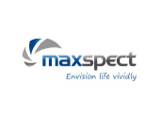Rewilding & Wilding Services in Devon & Cornwall
Helping Nature Recover, One Habitat at a Time
At SAS Aquatics, we believe in giving nature a helping hand. Rewilding and wilding is about allowing ecosystems to recover and thrive, but in many places, land and water need active support to get started. That’s where we come in.
Whether you’re a farmer, landowner, estate manager, or community group, we help design and deliver practical, affordable solutions that restore biodiversity, improve soil and water health, and make landscapes more resilient.
What Is Rewilding?
Rewilding isn’t about neglecting land — it’s about working with it to create the right conditions for nature to return. — it’s about working with it to create the right conditions for nature to return.— it means creating the right conditions for nature to flourish. Sometimes that involves large-scale projects such as wetland restoration or woodland expansion. Other times it’s small, focused actions like creating wildlife ponds, planting wildflower meadows, or removing invasive species, or sometimes letting it work things out for itself!
Our approach to rewilding is practical and tailored. We know that every site is different — some landscapes just need space, while others benefit from targeted habitat creation and improvement.
Restoring Aquatic Habitats
Water is the lifeblood of ecosystems, and healthy aquatic habitats are vital for both wildlife and people. At SAS Aquatics, we specialise in the creation, restoration, and management of water-based habitats that support biodiversity, improve water quality, and help landscapes adapt to climate change.
Wildlife Ponds
A wildlife pond is one of the most effective ways to support nature recovery. Even a small pond provides breeding grounds for amphibians, feeding sites for birds, and nectar for pollinators. We design ponds with natural edges, planting zones, and varied depths to maximise biodiversity.
Wetlands & Scrapes
Wetlands act as natural sponges, storing water in times of flood and slowly releasing it in dry spells. They filter pollutants, improve soil health, and provide habitat for countless species. We work with landowners and farmers to create scrapes, reedbeds, and floodplain wetlands that benefit both wildlife and people.
Riparian & River Edge Habitats
Streams, rivers, and ditches are often overlooked in rewilding projects, yet they play a key role in ecological connectivity. We restore riparian margins with native planting, manage invasive species, and design buffer zones that reduce runoff and improve water quality.
Natural Flood Management
By holding water in the landscape through wetlands, leaky dams, and scrapes, we can reduce downstream flooding, recharge groundwater, and improve drought resilience. These techniques benefit farmers and communities while creating new wildlife habitats.
Our Rewilding Services
We offer a full range of rewilding and wilding services across Dartmoor, Devon, and Cornwall:
- Wetland & Scrape Creation – Improve water quality, support biodiversity, and manage flooding naturally.
- Wildlife Ponds – Small or large ponds that provide habitats for amphibians, dragonflies, and birds.
- Wildflower Meadows – Boost pollinators and soil health with species-rich planting.
- Woodland & Hedgerow Planting – Create habitat corridors and long-term carbon sinks.
- Invasive Species Management – Safe removal of species like Himalayan balsam and rhododendron.
- Long-Term Land Management Plans – Tailored strategies for farmers, estates, and communities.
Why Rewild with SAS Aquatics?
- Local Expertise – Based on Dartmoor, we understand the landscapes and habitats of Devon and Cornwall.
- Hands-On & Consultancy – We offer both ecological advice and practical delivery.
- Part of the Devon Rewilding Network – We share knowledge and collaborate with others committed to restoring nature in the region.
- For Farmers & Landowners – We design projects that balance profitability with ecology — from natural flood management to biodiversity credits and eco-tourism.
Funding & Grants for Rewilding
Rewilding doesn’t have to be a financial burden — there are grants and funding streams available for landowners and communities. We help identify and apply for funding such as:
- Environmental Land Management Schemes (ELMS) – Payments for nature-friendly farming.
- Countryside Stewardship – Support for habitat creation and management.
- Rewilding Innovation Fund – Grants for innovative projects.
- Local Nature Recovery Strategies – Funding linked to biodiversity improvements.
- Devon & Cornwall Community Funds – Support for community rewilding initiatives.
We can provide guidance, applications, and management plans to help you access these opportunities and make your project financially sustainable.
Who We Work With
We support a wide range of clients including:
- Farmers – Integrating wilding into profitable, low-intensity farming systems.
- Private Landowners – Creating ponds, meadows, and woodlands to enhance land value and biodiversity.
- Community Groups & NGOs – Supporting collaborative wilding projects that bring people together.
- Public Bodies – Assisting with habitat creation and natural capital strategies.
Surveys & Monitoring
Successful rewilding and wilding projects rely on good evidence. Surveys are vital at the start of a project to establish a baseline, and they remain just as important as habitats develop. Monitoring helps track progress, measure biodiversity gains, and guide future management decisions.
At SAS Aquatics, we work with trusted ecologists and use practical field surveys to support our projects. These can include:
- Habitat Surveys – Mapping existing habitats and identifying opportunities for restoration.
- Aquatic Surveys – Assessing ponds, wetlands, and watercourses for invertebrates, amphibians, and water quality.
- Flora & Fauna Monitoring – Recording plants, pollinators, birds, bats, and other species to measure biodiversity change.
- Hydrology Assessments – Understanding water flows, drainage, and natural flood management potential.
Surveys not only provide a clear picture of ecological health — they also support grant applications and help demonstrate impact to funders, stakeholders, and communities.
Whether you are a farmer, landowner, or community group, we can build a survey and monitoring package that fits your project and budget, giving you confidence that your investment in nature is delivering real results.
Together, we can create a wilder, healthier Devon, where people, wildlife, and landscapes thrive side by side.
Rewilding & Wilding FAQs
Do I need planning permission for rewilding projects?
Most small-scale rewilding projects, such as creating wildlife ponds, planting wildflower meadows, or managing invasive species, don’t require planning permission. Larger works (like major wetland creation, tree planting on open moorland, or changes that affect public access) may need consent. We can advise you on the regulations before starting any project.
What grants are available for rewilding in Devon and Cornwall?
There are several funding streams available, including the Environmental Land Management Schemes (ELMS), Countryside Stewardship, the Rewilding Innovation Fund, and Local Nature Recovery Strategies. We help identify the most suitable grant and assist with applications.
Can rewilding be profitable for farmers and landowners?
Yes. Rewilding and habitat creation can open up new income streams such as biodiversity credits, ELMS payments, eco-tourism opportunities, and reduced management costs. We work with farmers and estates to design financially viable projects that benefit both nature and landowners.
How long does it take to see results from rewilding?
Some changes happen quickly — for example, a wildlife pond can attract insects, birds, and amphibians within weeks. Other habitats, such as meadows and woodlands, take longer to establish. We provide management plans that balance short-term wins with long-term ecosystem recovery.
What is the difference between rewilding and wilding?
While the terms are often used interchangeably, there is an important distinction. Rewilding is usually about stepping back and allowing natural processes to take over, sometimes with the reintroduction of missing species. Wilding is more hands-on — shaping habitats, creating ponds, planting meadows, and managing land to give nature the best possible start.
At SAS Aquatics, our work leans towards wilding. We give nature a helping hand through practical habitat creation and improvement, while still allowing ecosystems to develop and thrive in their own way. In both approaches, ecological surveys and ongoing monitoring are essential to understand progress, measure biodiversity gains, and guide future management.
Who do you work with?
We work with a wide range of clients, including farmers, landowners, estates, community groups, NGOs, and public bodies. As part of the Devon Rewilding Network, we also collaborate with others across the region to share knowledge and create joined-up habitats.
Get Started with Rewilding
Whether you want to create a single wildlife pond, restore an overgrazed field, or develop a long-term rewilding plan for your estate, SAS Aquatics can help.
📞 Contact us today to arrange a site visit and start your rewilding journey.






